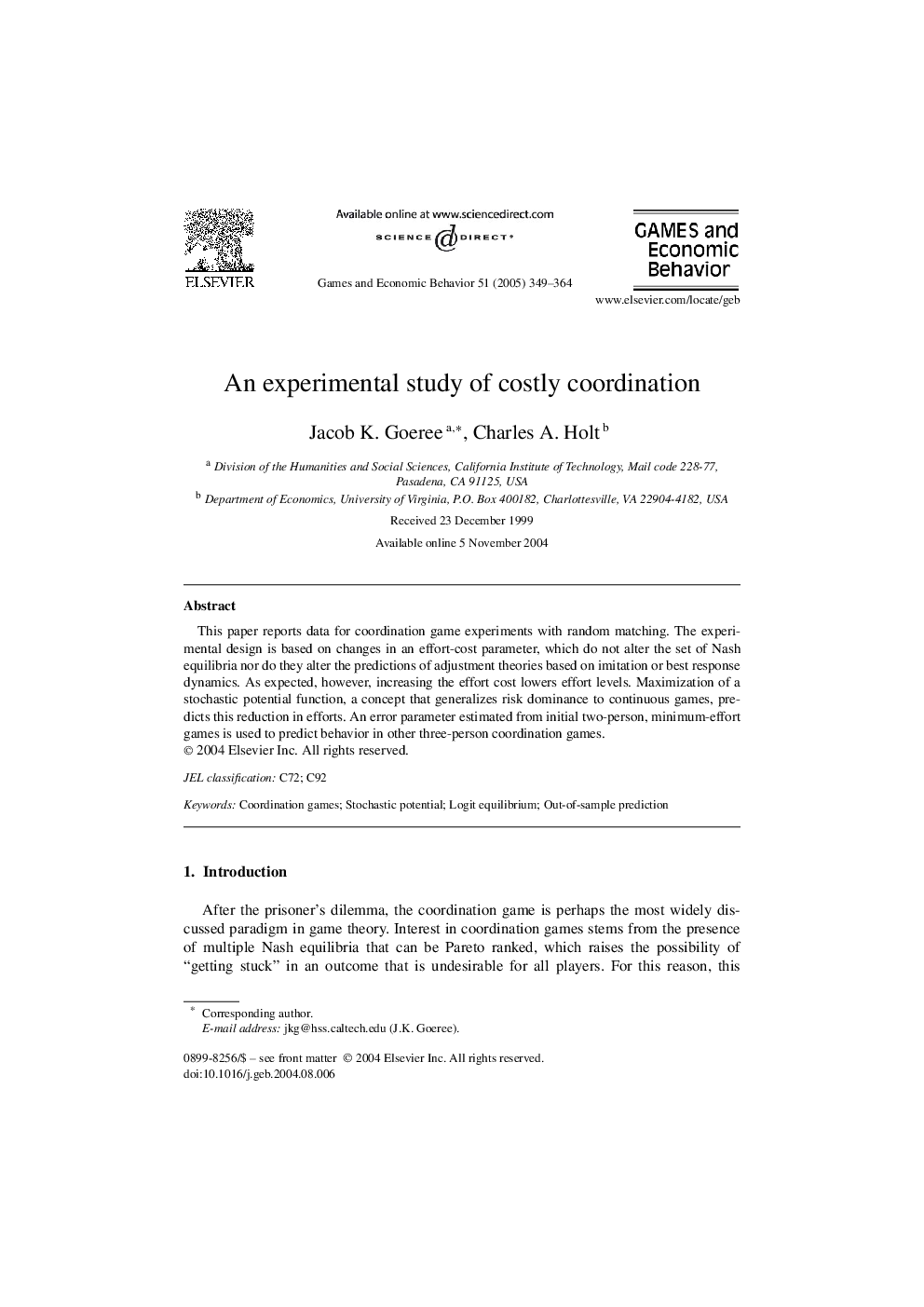| Article ID | Journal | Published Year | Pages | File Type |
|---|---|---|---|---|
| 9551714 | Games and Economic Behavior | 2005 | 16 Pages |
Abstract
This paper reports data for coordination game experiments with random matching. The experimental design is based on changes in an effort-cost parameter, which do not alter the set of Nash equilibria nor do they alter the predictions of adjustment theories based on imitation or best response dynamics. As expected, however, increasing the effort cost lowers effort levels. Maximization of a stochastic potential function, a concept that generalizes risk dominance to continuous games, predicts this reduction in efforts. An error parameter estimated from initial two-person, minimum-effort games is used to predict behavior in other three-person coordination games.
Related Topics
Social Sciences and Humanities
Economics, Econometrics and Finance
Economics and Econometrics
Authors
Jacob K. Goeree, Charles A. Holt,
